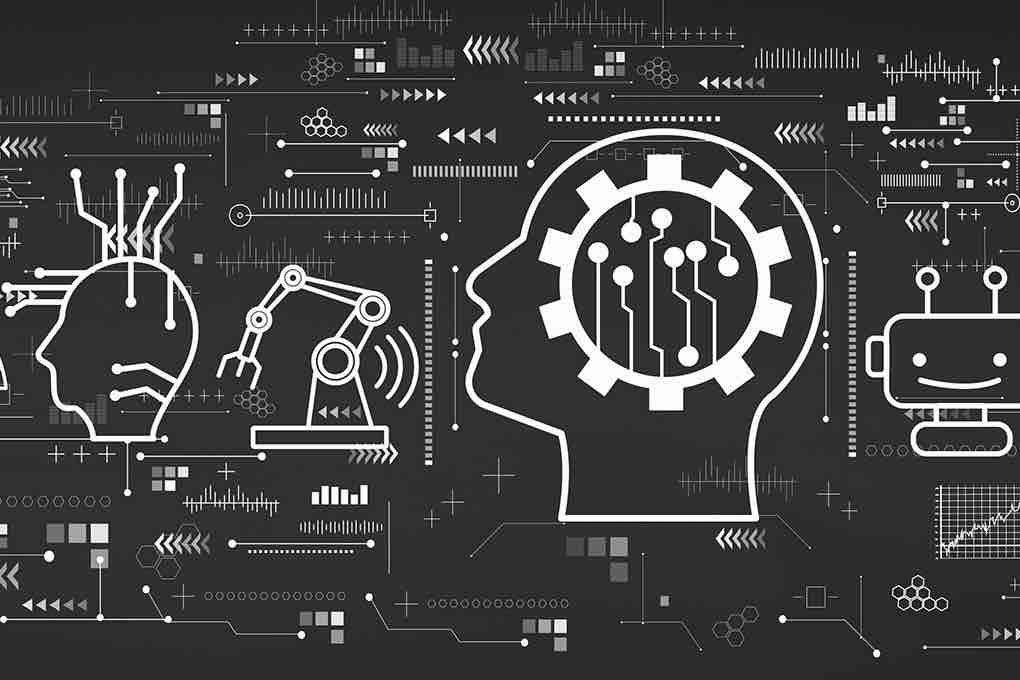Machine Learning
Overview Machine learning is a field of computer science and artificial intelligence that involves the development of algorithms and models that enable computers to learn from and make predictions or decisions based on data, without being explicitly programmed to do so. In other words, machine learning is a way for …
Overview
Benefits of Learning
- In-Demand Skill: Machine learning is one of the fastest-growing and most in-demand fields in the technology industry, with a growing number of job opportunities in various sectors such as healthcare, finance, retail, and more. Learning machine learning can help you gain valuable skills that are highly sought after by employers.
- Data Analysis: Machine learning involves analyzing large amounts of data, which can help you improve your data analysis skills. This can be particularly useful if you’re working in a data-driven industry or are interested in pursuing a career in data science.
- Problem-Solving: Machine learning involves developing algorithms to solve complex problems, which can help you develop your problem-solving skills. These skills can be valuable in a range of different contexts, from scientific research to business strategy.
- Automation: Machine learning can be used to automate repetitive and time-consuming tasks, which can help increase efficiency and productivity. This can be particularly useful in industries such as manufacturing, where automation can help improve quality control and reduce costs.
- Career Growth: Learning machine learning can help you advance your career by providing you with the skills and knowledge to take on new roles and responsibilities. It can also open up new career opportunities in a range of different industries.
Overall, learning machine learning can provide a wide range of benefits, from improving your data analysis and problem-solving skills to helping you advance your career in the technology industry.
Who can Learn
The following are some examples of people who can benefit from learning machine learning:
- Students: Students who are interested in pursuing a career in data science, computer science, or engineering can benefit from learning machine learning.
- Professionals: Professionals who are interested in upskilling or transitioning to a career in machine learning, artificial intelligence, or data science can benefit from learning machine learning.
- Entrepreneurs: Entrepreneurs who want to build machine learning-powered applications or products can benefit from learning machine learning.
- Researchers: Researchers who are interested in analyzing large datasets or developing predictive models can benefit from learning machine learning.
- Anyone with an interest in technology: Anyone who is curious about machine learning, data analysis, or artificial intelligence can benefit from learning machine learning.
In summary, anyone who wants to learn machine learning can do so, regardless of their educational background or professional experience. All that is required is a desire to learn and a willingness to put in the effort and time required to gain proficiency in the subject.
Career Scope
- Data Scientist: A data scientist is responsible for collecting, analyzing, and interpreting large datasets using machine learning algorithms and statistical models to derive insights that help organizations make data-driven decisions.
- Machine Learning Engineer: A machine learning engineer is responsible for developing and deploying machine learning algorithms and models that enable computers to learn from and make predictions or decisions based on data.
- Artificial Intelligence (AI) Researcher: An AI researcher is responsible for developing new machine learning algorithms, exploring new areas of AI research, and developing new AI-powered applications.
- Business Intelligence Analyst: A business intelligence analyst is responsible for using machine learning algorithms and statistical models to analyze business data and derive insights that help organizations make informed decisions.
- Robotics Engineer: A robotics engineer is responsible for developing machine learning algorithms and models that enable robots to learn and adapt to their environment.
- Computer Vision Engineer: A computer vision engineer is responsible for developing machine learning algorithms and models that enable computers to interpret visual data, such as images and videos.
In addition to these roles, there are many other career opportunities in machine learning, such as software engineer, data analyst, and product manager. The demand for professionals with machine learning skills is high across a range of industries, including healthcare, finance, retail, and more, making it a great field to pursue for those interested in a challenging and rewarding career.
Salary Package with Job Role
- Data Scientist: In India, the starting salary for a data scientist is typically around INR 6-8 lakhs per annum, and it can go up to INR 20-25 lakhs per annum with several years of experience. In the USA, the average salary for a data scientist is around $120,000 to $150,000 per annum.
- Machine Learning Engineer: In India, the starting salary for a machine learning engineer is typically around INR 6-8 lakhs per annum, and it can go up to INR 20-25 lakhs per annum with several years of experience. In the USA, the average salary for a machine learning engineer is around $110,000 to $140,000 per annum.
- Artificial Intelligence Researcher: In India, the starting salary for an AI researcher is typically around INR 10-12 lakhs per annum, and it can go up to INR 30-35 lakhs per annum with several years of experience. In the USA, the average salary for an AI researcher is around $150,000 to $200,000 per annum.
- Business Intelligence Analyst: In India, the starting salary for a business intelligence analyst is typically around INR 4-6 lakhs per annum, and it can go up to INR 12-15 lakhs per annum with several years of experience. In the USA, the average salary for a business intelligence analyst is around $80,000 to $120,000 per annum.
It’s important to note that these are just general estimates, and the actual salary package can vary depending on many factors. Additionally, the cost of living and other factors can vary significantly between different locations and countries, which can impact the actual take-home pay.
Requirements To Study
- Computer Programming: You will need to have a basic understanding of programming languages such as Python, R, or Java. You should be comfortable with concepts such as data types, control structures, functions, and algorithms.
- Mathematics: You will need to have a good understanding of linear algebra, calculus, probability, and statistics. These concepts are used in building and analyzing machine learning models.
- Statistics: You will need to have a good understanding of statistical concepts such as hypothesis testing, regression, and sampling.
- Data Structures and Algorithms: You should be comfortable with data structures such as arrays, linked lists, and trees, as well as common algorithms such as sorting and searching.
- Machine Learning Concepts: You should have a basic understanding of machine learning concepts such as supervised and unsupervised learning, regression, classification, clustering, and deep learning.
- Tools and Frameworks: You will need to be familiar with some of the popular tools and frameworks used in machine learning, such as TensorFlow, Keras, PyTorch, scikit-learn, and Pandas.
It’s worth noting that the level of proficiency required in each of these areas will depend on the specific course or program you’re interested in. Some courses may have more or less stringent requirements, and some may offer introductory-level material for those who need to brush up on their foundational knowledge.
Key Features
The key features of a machine learning course may vary depending on the program and institution offering the course. However, here are some common key features that you might expect to find in a quality machine learning course:
- Foundational Knowledge: A good machine learning course will provide a solid foundation in the fundamental concepts and theories of machine learning, including supervised and unsupervised learning, regression, classification, clustering, and deep learning.
- Hands-On Learning: A quality machine learning course will provide opportunities for students to apply the concepts they learn in practical settings. This may include coding assignments, case studies, and projects that involve working with real-world data.
- Experienced Instructors: The course should be taught by experienced instructors who have a deep understanding of machine learning concepts and applications. Ideally, the instructors should have real-world experience working with machine learning tools and technologies.
- State-of-the-Art Tools and Technologies: The course should provide access to state-of-the-art machine learning tools and technologies, such as TensorFlow, Keras, PyTorch, scikit-learn, and Pandas.
- Collaboration and Networking Opportunities: A good machine learning course should provide opportunities for students to collaborate with one another and build professional networks. This may include group projects, online discussion forums, and networking events.
- Practical Applications: A quality machine learning course should help students to see how machine learning can be applied in a variety of real-world contexts. This may include case studies and examples from industries such as healthcare, finance, marketing, and more.
- Career Support: A good machine learning course should provide career support and guidance to help students prepare for jobs in the field. This may include job placement assistance, resume building workshops, and career counseling.
Overall, a quality machine learning course should provide a comprehensive education in the principles and practices of machine learning, as well as opportunities for hands-on learning, collaboration, and career preparation.
Course Curriculum
Module 1. Introduction to Machine Learning:
- This module will cover the basics of machine learning, including supervised and unsupervised learning, regression, classification, clustering, and deep learning.
Module 2. Data Preprocessing and Feature Engineering:
- This module will cover techniques for data cleaning, preprocessing, and feature extraction, including data normalization, one-hot encoding, and dimensionality reduction.
Module 3. Model Selection and Evaluation:
- This module will cover techniques for selecting and evaluating machine learning models, including cross-validation, bias-variance tradeoff, and performance metrics such as precision, recall, and F1 score.
Module 4. Linear Regression:
- This module will cover linear regression models and techniques for fitting, evaluating, and optimizing them.
Module 5. Logistic Regression:
- This module will cover logistic regression models and techniques for fitting, evaluating, and optimizing them.
Module 6. Decision Trees:
- This module will cover decision trees and ensemble methods such as random forests and gradient boosting.
Module 7. Support Vector Machines:
- This module will cover support vector machines and techniques for fitting, evaluating, and optimizing them.
Module 8. Neural Networks:
- This module will cover artificial neural networks and deep learning techniques, including convolutional neural networks and recurrent neural networks.
Module 9. Unsupervised Learning:
- This module will cover unsupervised learning techniques, including clustering algorithms and principal component analysis.
Module 10. Applications of Machine Learning:
- This module will cover a variety of real-world applications of machine learning, such as natural language processing, image and speech recognition, recommendation systems, and fraud detection.
Again, this is just a general overview of the topics that may be covered in a machine learning course. The specific curriculum will vary depending on the program and level of the course
Instructor
Requirements
- Computer Programming: You will need to have a basic understanding of programming languages such as Python, R, or Java. You should be comfortable with concepts such as data types, control structures, functions, and algorithms.
- Mathematics: You will need to have a good understanding of linear algebra, calculus, probability, and statistics. These concepts are used in building and analyzing machine learning models.
- Statistics: You will need to have a good understanding of statistical concepts such as hypothesis testing, regression, and sampling.
- Data Structures and Algorithms: You should be comfortable with data structures such as arrays, linked lists, and trees, as well as common algorithms such as sorting and searching.
- Machine Learning Concepts: You should have a basic understanding of machine learning concepts such as supervised and unsupervised learning, regression, classification, clustering, and deep learning.
- Tools and Frameworks: You will need to be familiar with some of the popular tools and frameworks used in machine learning, such as TensorFlow, Keras, PyTorch, scikit-learn, and Pandas.
Features
- Foundational Knowledge
- Hands-On Learning
- Experienced Instructors
- State-of-the-Art Tools and Technologies
- Collaboration and Networking Opportunities
- Practical Applications
- Career Support
- Certification
Target audiences
- Students: Students who are interested in pursuing a career in data science, computer science, or engineering can benefit from learning machine learning.
- Anyone with an interest in technology: Anyone who is curious about machine learning, data analysis, or artificial intelligence can benefit from learning machine learning.
- Professionals: Professionals who are interested in upskilling or transitioning to a career in machine learning, artificial intelligence, or data science can benefit from learning machine learning.
- Entrepreneurs: Entrepreneurs who want to build machine learning-powered applications or products can benefit from learning machine learning.
- Researchers: Researchers who are interested in analyzing large datasets or developing predictive models can benefit from learning machine learning.





